Faye Barras, Physics Teacher at Zhenhai High School, has won the inaugural Most Outstanding Panel Member award in 2022 for her work in the Dipont High School Programme Science Subject Panel.
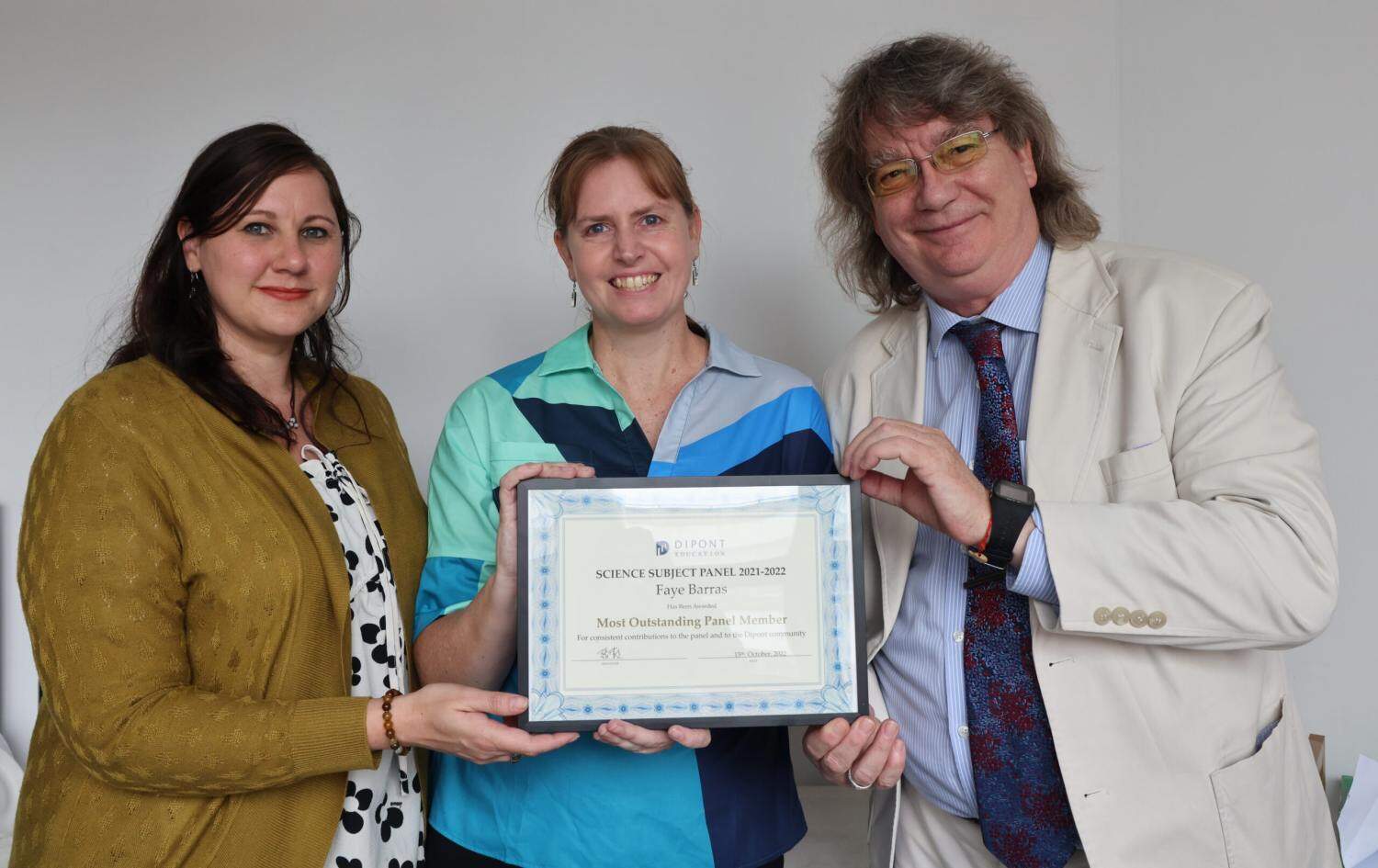
Faye receives the award for Most Outstanding Panel Member, 2022, from Tanya Jordaan, Center Principal at Zhenhai High School, and Stephen Fulton, Director of Education for Dipont High School Programmes.
Here she talks about how she got involved with the Science Subject Panel, and why it is a great way for Dipont teachers to grow their knowledge base and expand their career horizons.
1. Can you tell me a bit about your background? Where are you from? What brought you to China?
I’m originally from South Africa. I grew up and went to school there, including completing my undergraduate degree at a local university. After graduating, I went to the US for eight years. I did my PhD there, and then taught at a college in Oregon for a couple of years. After that I returned to South Africa for a year.

The Zhenhai High School campus is renowned for its lavish gardens and ambient surrounds.
An opportunity came up for me to go to China, working with Dipont. I was in Chengdu for three lovely years, teaching AP physics with a great group of colleagues. After that I moved to Zhenhai, Ningbo. Since then I have made new friends, broadened my horizons, taught new curriculum, and thoroughly enjoyed living in another beautiful part of China.
2. What is the Science Subject Panel?
It is a selection of teachers from all the different science subjects and different curriculums. The primary function is to serve as a resource, providing materials for teachers as needed. It also works to establish Dipont-wide science initiatives, such as Science competitions, and gives advice to the wide community of science teachers in Dipont.
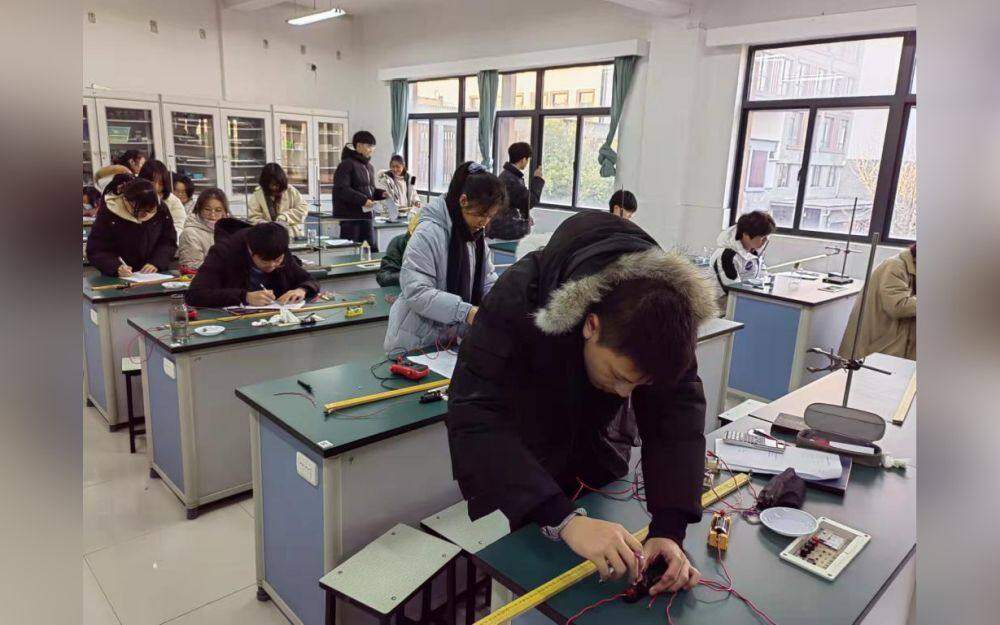
Science students in the Dipont High School Programme at Zhenhai High School are engaged, hard-working, and deeply inquisitive.
If teachers have any questions about equipment or curriculum, or even how to do labs, we are there to help. Every year the panel members are involved in presenting a live demonstration of subject labs and demos. You could say the main role of the science subject panel is to encourage and inspire.
3. How has the Science Subject Panel changed for you over the years?
The first year I was on the panel we all met in person in Shanghai. When we judged the posters, we had the finalists’ posters all spread out on a table for us to discuss and grade together. Due to the impact of COVID, we have had to meet virtually instead. We have had to perform tasks like judging poster competitions online.

An example of an entry in the Subject Science Panel Logo competition for 2022. Works are evaluated on the basis of creative merit as well as the reasoning behind their depiction of science related global concerns.
The members on the panel have also changed. It has been lovely to meet different people as time goes by. It is inspiring to be in a room of experienced science teachers and be able to bounce ideas off each other.
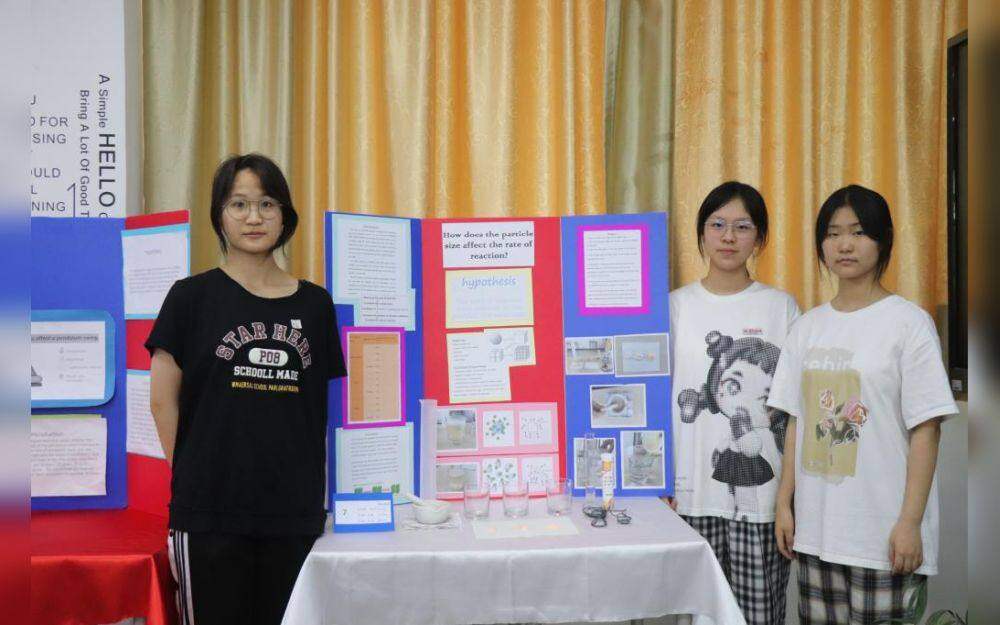
Students at Zhenhai High School proudly display the fruits of their intellectual and creative labours.
In terms of the competitions, the categories have been continuously evolving. For example, we added an artistic category to encourage the more “arty” students to get more involved with science.
We will also be doing a chemistry detective competition for the first time this year. In this event, students are given clues, and they have to use their scientific reasoning, especially their chemistry reasoning, to come up with answers to solve a crime.
4. What are the unique challenges of teaching science classes online?
The biggest challenge is making sure the students are engaged. As a teacher you need to utilize and adapt the technology to make the transition from face-to-face to online as seamless as possible.
For example, I like to use Plicker cards in my classroom. Every student has to choose an answer from a multiple-choice question. As an online equivalent, there’s usually some sort of voting option or comment section that students can use to do the same thing. We know what works in the classroom. The challenge is how to carry what works into an online environment.
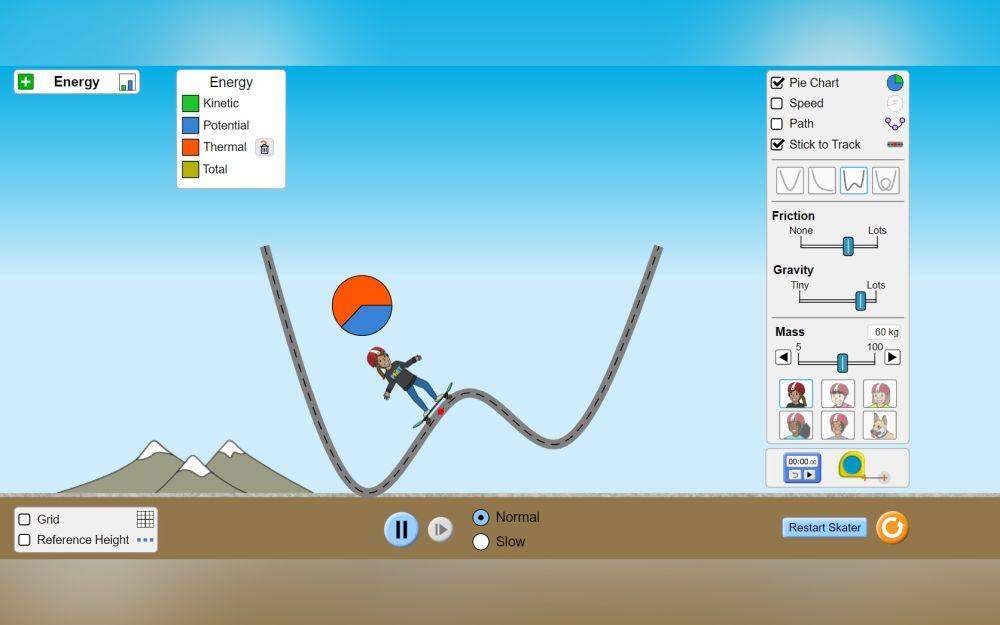
Screenshot of PhET, a virtual simulation website developed by the University of Colorado, in action.
Running labs online is an added layer of challenge. A good option is to use virtual simulations. PhET, a great website developed by the University of Colorado, has many interactive simulations of science topics. You can select a particular simulation from this website, design a lab or investigation objective on it, and then ask students to follow the investigation process and write a lab report just as if they were in a physics lab.
Of course, the challenges of experimental error are minimized due to the simulation design, but students still get to work through the lab process, albeit remotely.
5. What have you gained personally out of being on the science subject panel?
From the competition side, it has given me a lot of insight into the work that goes into creating a rubric for assessing the submissions, and the issues that can arise from certain wording. Having been a competition advisor before, I’ve experienced the challenges of interpreting the requirements and rubric firsthand.
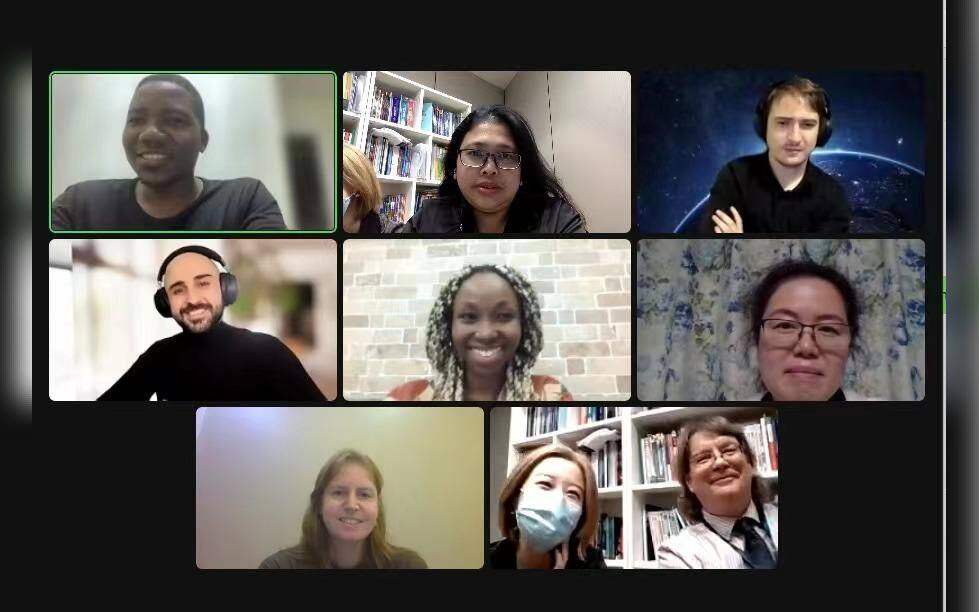
While travel restrictions have limited the opportunities for the Science Subject Panel to meet face to face, they are still able to enjoy regular ZOOM catch ups.
Now, seeing it from a planning and coordination perspective, I can experience different challenges. For example, the need to accommodate different school calendars. You could say I am getting more experience with project management, and problem solving.
6. What would you say to someone to encourage them to join the science subject panel?
One great thing about being on the science panel is you are more up to date on current events. It helps you to get to know other experienced teachers that you otherwise might not have had the opportunity to speak with.
If you are in a room with four physics teachers and two chemistry teachers, and your time is limited, it is likely that teachers will gravitate to and talk with the other teachers of the same subject. The Science Subject Panel creates the opportunity to have conversations across disciplines, working together towards a common goal.
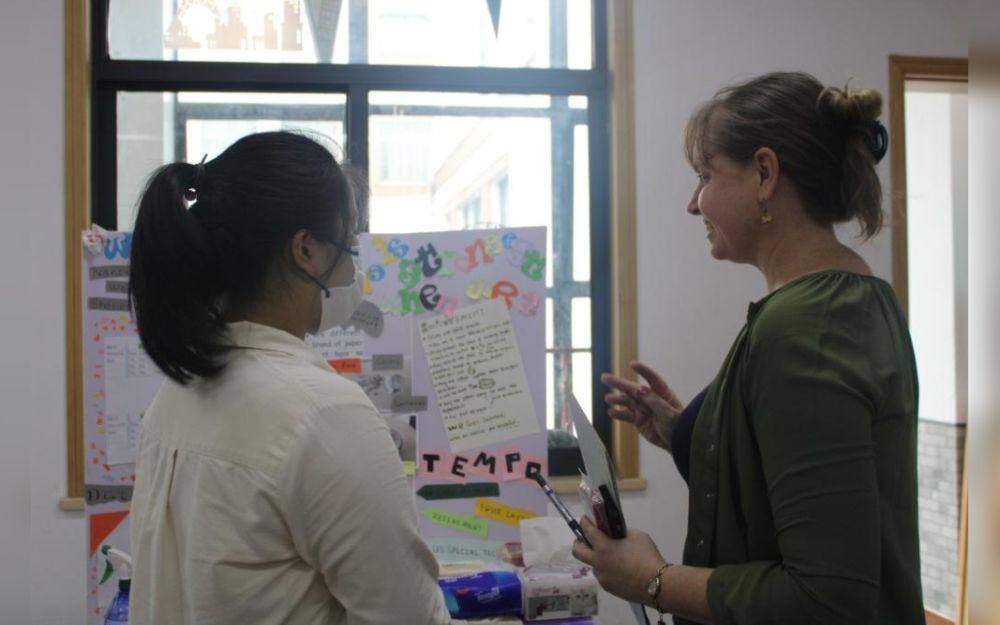
Faye has experienced the full gamut of opportunities provided by her involvement with the Science Subject Panel, from helping students as an advisor to directly contributing to the planning and implementation of Dipont-wide initiatives.
Sharing ideas helps you keep up to date in the techniques involved in the teaching of different science disciplines. This in turn inspires you to be more knowledgeable in your own discipline, which makes you a better teacher.

